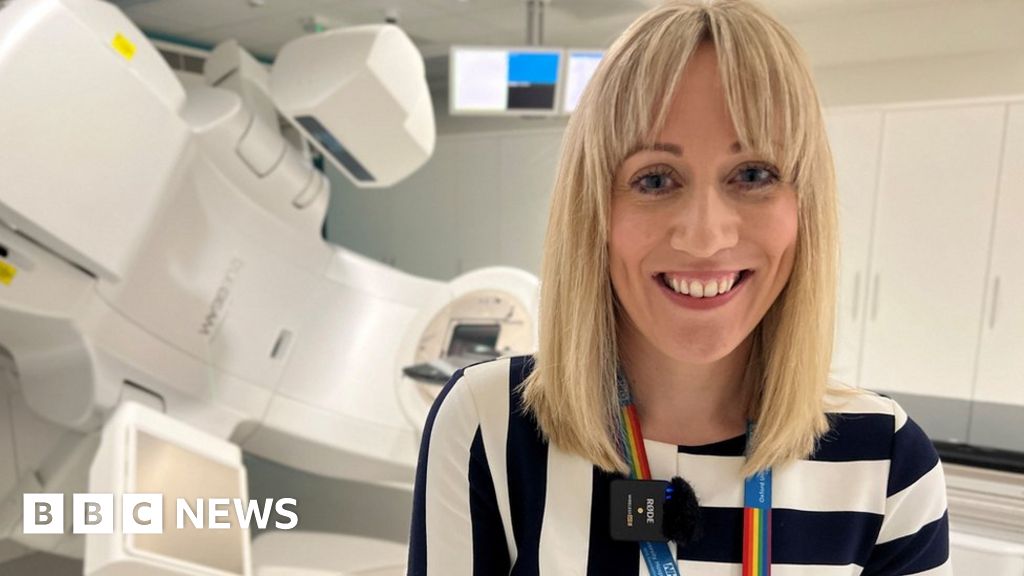- By Dan O’Brien
- BBC Politics Reporter, Wiltshire
The facility in Swindon is Wiltshire’s only radiotherapy centre
Nearly 600 cancer patients have been treated at a radiotherapy centre in its first year of operation.
The centre in Swindon, next door to the Great Western Hospital, saves local patients making a daily 70-mile (113 km) round trip to Oxford.
Some patients previously unable to get to Oxford are now able to access treatment, according to health bosses.
Swindon’s centre is now fully staffed and preparing to expand its capacity in the future.
In its first year 6,606 radiotherapy treatments and 544 CT scans have been undertaken
“Had it been in Oxford, that would have been three more weeks I wouldn’t have been able to go to work,” said Marianne, a patient, secondary school teacher and mother of two young boys.
She knows all too well what the experience could have been like, as her own father died of cancer shortly before the new centre opened.
“He was having to get transport. Nine times out of 10 he left at seven in the morning, and wasn’t getting home until seven or eight in the evening,” she said.
“We weren’t able to ease that journey for him, and if this centre had been open it would have been an absolute godsend.”
Some patients could not face the journey to Oxford, said Joanne Watts, operational manager at the Swindon Radiotherapy Centre
Although it is on the Great Western Hospital’s campus, the Swindon Radiotherapy Centre is run by the Oxford University Hospitals NHS Trust.
It says in the first year, the centre has treated 593 patients, delivered 6,606 radiotherapy treatments and 544 CT scans.
Based on the typical 70-mile round trip from Swindon to Oxford, it estimates the new centre has saved patients nearly half a million miles – or 744 days – of travel.
The previous arrangement resulted in some patients being unable to face the treatment, according to Joanne Watts, operational manager.
“Some had declined treatment in Oxford because they can’t manage the travel, whereas now having it here they’re able to have the treatment and relieve some of their symptoms and pain,” she said.

